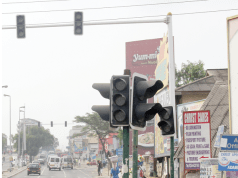Authors: Drs. Alfred Adjiri-Awere, Ben Enyetornye, Obed Danso Acheampong, Richard Abbiw, Boateng Kwadwo Yeboah, Jeffrey Bondzi Wi-Afedzi, Dominic Osei.
The COVID-19 pandemic continues to threaten the human race and almost every aspect of our lives. The advent of the COVID-19 has had a negative implication on animal production world-wide with concomitant lockdowns across the globe to control the pandemic.
These measures, while excellent, will invariably precipitate a drop in animal production.
Therefore, immediate strategies to avert this situation in Ghana are needed to strengthen and maintain a steady animal production sector. The current President of the Poultry Farmers Association, Victor Oppong-Adjei, appealed to the Government of Ghana on Tuesday, March 31, 2020, to “…to exempt our members from restriction”.
This is to allow poultry farmers to continue to work even though the country is presently fighting the COVID-19 pandemic without any security harassment.
It is therefore imperative to forge a very tight collaboration between Ghana Veterinary Services Directorate (VSD), Animal Production Directorate (APD), Ghana Health Service (GHS), National Security Forces and various Poultry and livestock Farmers’ associations to make this a reality. Some of the strategies that can be used to off-set the potential animal production deficits and boost the existing situation in Ghana are:
Animal Movement Control
Eliminating restrictive movement on livestock and poultry products both within Ghana and across our ports and borders to make them available and accessible on our markets to avoid shortages and price hikes.
This also includes allowing a transboundary movement of livestock mainly cattle, sheep and goats with the requisite veterinary permit to supplement local deficits from neighbouring countries.
Notwithstanding, all animals should be well examined before the issuance of the movement permit, as a screening measure for animal disease control. These are commodities that fall into the food value chain category and should be allowed onto our market.
Disease Surveillance
The relevance of active and passive animal surveillance is of great importance and cannot be over-emphasized. This step seeks to identify any notifiable disease amid the COVID-19 pandemic.
This remains crucial in a bid to offset any disease situation that can compromise animal production efforts, further complicating the quest to maintain formidable livestock and poultry value chain in Ghana.
Moreover, some of these animal diseases (e.g., Anthrax, Tuberculosis, Brucellosis, Salmonellosis) pose a public health threat and can worsen the current subtle public health situation in Ghana.
It is therefore recommended that, whenever a notifiable disease is suspected, provisional disease control measures should be initiated, before samples submission for diagnosis. In case of suspicion of outbreak situation, appropriate strategies such as ring vaccination, animal quarantine and animals movement restrictions should be implemented with immediate effect to protect the livestock and poultry resources in Ghana.
Some animal diseases are of utmost importance to the livestock (e.g.,Anthrax, Tuberculosis, Contagious Bovine Pleuropneumonia, Peste des Petit Ruminants, African Swine Fever), poultry (e.g., Newcastle Disease, Avian Influenza) and equestrian (e.g., African Horse Sickness) industries.
Farmers should be encouraged to vaccinate their animals to prevent animal losses especially from vaccine-preventable animal diseases and adhere to biosecurity measures on their farms.
Animal Markets
It is important to note that some countries have closed their animal markets. The reason ascribed for this move was that the animal markets remains a focus of exchange of diseases between humans and animals alike. In Ghana, where animal markets remain operational amid the COVID-19 pandemic, animal disease surveillance on various animal species should be done before the animal sale.
Meat and Wet markets
All meat markets and butcheries across the country should be made to adhere to strict operational protocols. It is recommended that all these forms of meat markets should not be allowed to have live animals on their premises. The COVID-19 pandemic is suspected to have emerged in a wet market in Wuhan China, where meat for sale was supposedly displayed close to live animals.
Scientists have postulated that a “species jump” was made by this virus from a live animal to humans during meat handling, and thought to have mutated and assumed a respiratory transmission phase from person to person via respiratory droplets and/or fomites.
It is therefore incumbent on the VSD to ensure that meat inspection takes place only at certified slaughterhouses, abattoirs and slaughter slabs. In places, where veterinary personnel is not available, health professionals from the Public Health Department of the GHS can be called upon for implementation.
Maximizing Local Poultry Production Capacity
The poultry hatchery industry can be boosted and encouraged to build and increase capacity and the local deficits supplemented with imported chicks to ensure a continuous and sustained poultry production cycle.
Animal Health Consultation and Technical Support System
The veterinarians and para-veterinarians of the VSD should continue to provide consultation and technical support services for the livestock and poultry farmers in the country.
Availability and Accessibility of Veterinary Pharmaceuticals and Vaccines Veterinary pharmaceuticals and vaccines should be given priority for clearance at Ghana ports, without delays to make them easily available and accessible to our poultry and livestock farmers.
There should be a smooth uninterrupted chain of veterinary drugs and vaccines supply and distribution in the country.
Farm Audit
It is also recommended that district veterinarians and para-veterinarians educate animal farmers in their jurisdictions on the need to have a separate sleeping area away from the animal houses. Evidence of people sharing common sleeping quarters with animals has been reported.
Worldwide, animals are the only known reservoirs of coronaviruses and are known to shed the viruses in their faeces and respiratory droplets which eventually contaminate human food and/or water, resulting in possible human infections.
The coronaviruses easily mutate into various viral strains in animals, which can potentially infect humans at any time.
The Screening for COVID-19 Status of Nomadic Herdsmen
The COVID-19 status of all livestock herdsmen crossing our borders with their animals should be ascertained by the requisite medical teams, collaboratively, from the GHS and the VSD at all Ghana’s borders.
Personal Protection Equipment (PPEs) for Health Teams at Border and Entry Points since COVID-19 is reported to survive on different surfaces to up to 9 days, at Ghana’s entry points, it is necessary to provide veterinary personnel with the required PPEs and good virucidals, e.g. Virkon, to disinfect incoming crates, containers and other packaging of live animals and animal products.
Also, arriving fishing vessels and boats must be subjected to aerial disinfection.
Slaughterhouses, Abattoirs, Slaughter Slabs and Meat Inspections
The VSD should inspect and clear imported meat and poultry products and by-products at the ports.The VSD should also conduct in-life examinations on all imported live animals at all entry points and post-mortem examination on carcasses in all slaughterhouses and abattoirs to prevent the potential importation of contagious animal diseases and zoonotic diseases with the propensity to destroy Ghana’s local livestock and poultry industry.
Overcrowding in slaughterhouses, abattoirs and meat processing facilities should be avoided. All staff not directly involved in the slaughtering and storage process should not be allowed on the premises.
Also, only meat transport vehicles should be made to load and transport meat from meat processing facilities.
Strengthening Animal Productivity
The Animal Production Directorate (APD) should educate and encourage farmers on the keeping of resilient and disease tolerant breeds of livestock, that thrives well in our climatic conditions and are of high yielding in both meat and milk output, and are also productive.





































